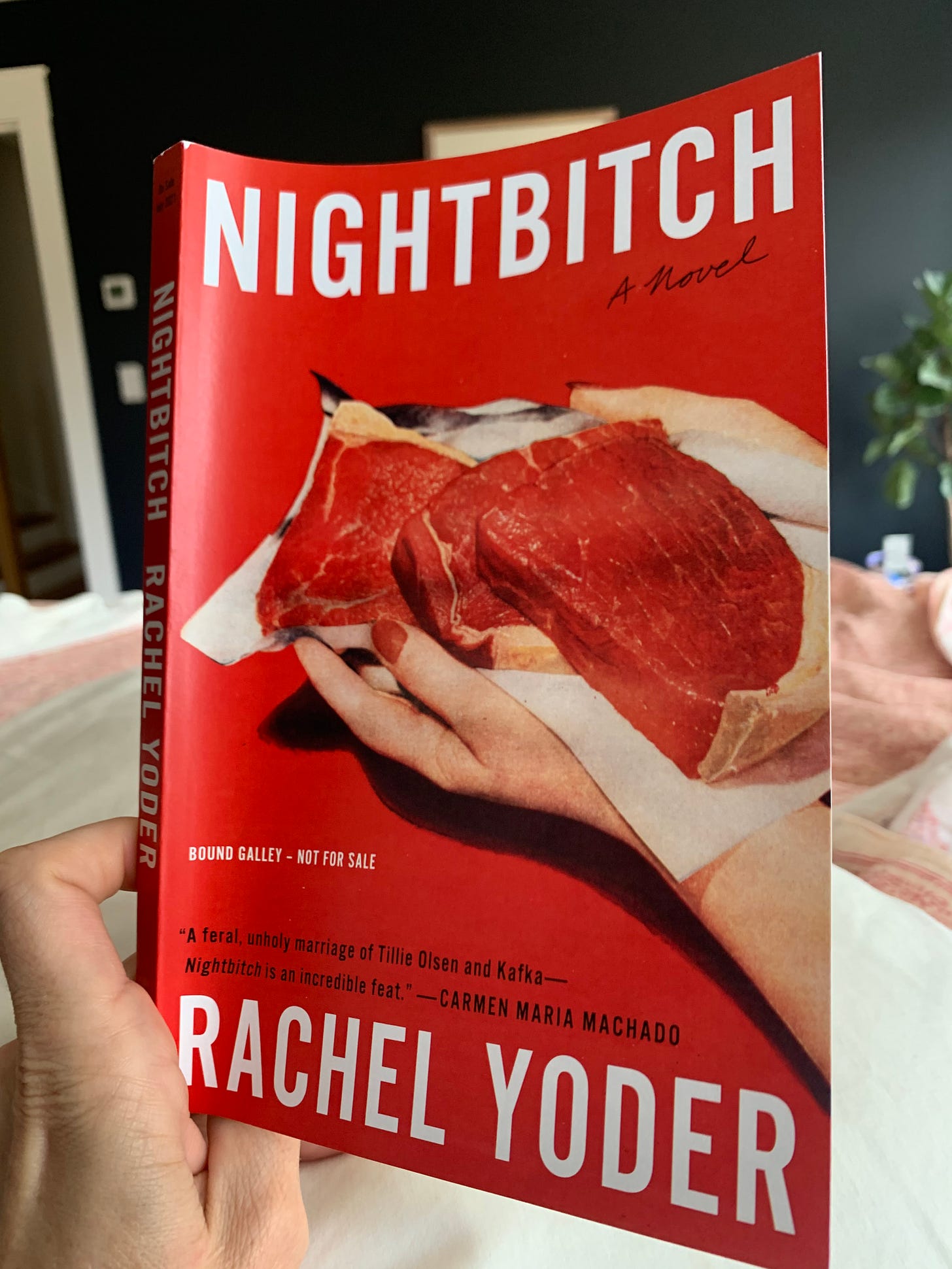Can We Talk About The Husband In Nightbitch?
"He has no ability to be her partner in a meaningful way."
Rachel Yoder’s Nightbitch is the first book I push into the hands of pregnant friends. It’s a book that would’ve made my first year of motherhood feel infinitely less lonely and crazy-making. Reading it was revelatory, even though I was several years away from those first wild years of seismic maternal change.
As soon as I read Nightbitch, I begged someone to let me write about it. I 100% DMed Rachel unhinged praise as I read it (“omg a kid named Aubergine - I’m dying!!!!”), and I definitely sent Rachel a picture of my tear-soaked face once I finished it as a way to show her how deeply the book moved me. If you’re a new mom, BUY THE BOOK. And if you're no longer a new mom but still feel shocked by how scammed you felt/feel about institutional motherhood and gendered labor, BUY THE BOOK. If you feel angry about motherhood, BUY THE BOOK. If you know a mother, BUY THE BOOK.
When Nightbitch came out in 2021, I interviewed Rachel for LARB, and (due to space constraints), this question was cut, but it’s very relevant to what I want to talk about today: the husband.
Sara: At the very beginning of Nightbitch, you reference Charlotte Perkins Gilman’s famous short story, the “Yellow Wallpaper,” which is about a woman undergoing a “rest cure” (presumably to cure her “hysteria” after having a baby) and subsequently going “mad.” I think so many women think of “The Yellow Wallpaper” differently (searingly!) after becoming mothers, and I’d love to hear how it impacted how you wrote both The Mother and her husband (“a caring man, an affable man”).
Rachel: I read “The Yellow Wallpaper” in a college Feminist Literature course, and it has been with me, very close to me, ever since. The husband’s clinical distance from his wife struck me as correct in a fundamental way. There is something that certain men can do, where they are present in a relationship or personal situation, yet not emotionally invested even in the slightest, which is so antithetical to my own experience and capabilities as a human that I have always found it utterly fascinating and deeply terrifying. The book explores this to a certain degree.
The husband character is an engineer, “rational,” and Nightbitch sees his rationality as an abandonment because he will not and, moreover, cannot, address her situation, her struggle as a stay-at-home mom, her lost dreams, her loneliness, her anger. He has no ability to be her partner in a meaningful way, and that is his great, passive transgression. I am still interested in a larger sense by how men are able to reject responsibility—or not even have it be a consideration—in so many parts of life, from the dirty dishes sitting in the sink to the emotional needs of a partner. I didn’t so much choose to relegate the husband to the sidelines so much as that seemed like his natural location. His absence is, if not the central problem of the book, the inciting one.
I loved so much about the film adaptation of Nightbitch, but the thing I loved the least was the interpretation of the husband. Here’s why.




